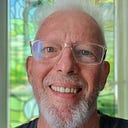The struggle in a world becoming your village.
I was so bad at languages at school. For French, I am native Flemish-speaking, I sat next to Catherine who spoke French at home. Every test she helped me willing or unwillingly so I could pass. Even English was a burden although you think it will be easy, it wasn’t. I remember going on an adventure to Paris for a German company to set up a distribution for scanners. I so failed in the first months as my French was nowhere good enough and Catherine was not sitting next to me anymore. Luckily I could hire an Algerian assistant who spoke and wrote better French than any Frenchman. In France, English is only for tourists, like 5 words and that’s it. Even my German counterpart was only German, except for the boss and his wife. And my language struggle continues. After I managed to speak 3 languages fluently I now struggle width Turkish. My eagerness for exploring the world was always met with language barriers.
I see the same struggle in Now Sprint Accelerator where teams have to leave the program because of the lack of English. They are probably very talented but today English in the startup world is simply a must for many reasons. I am very lucky I was born in a multilingual country as it confronts you immediately with the language barriers. My father insisted that I spoke French fluently. He only spoke a flemish dialect and was very frustrated by that. The fact that English made it as the international language probably comes from the fact that the US has a market of 400 million people speaking the same language and their openness to being innovative and great entrepreneurial spirit.
In developing countries, not to mention the underdeveloped countries, the language barrier is a struggle to connect with the fast speed of the developed countries and we point to globalisation as the problem. Education and political choices are in my opinion way more important in creating a counterbalance. Romanticism in the 18th century created nationalism and we have seen terrible things born out of that. The result we see today, where the most talented people who have the means move out of countries that are using language, in many forms, and land at places where another language is used that inspires and challenges in a positive way.
I only recently discovered Anthony Bourdain: Parts Unknown on Netflix. The poor man is not anymore but what an amazing way of discovering cities and countries through the language of food. He prefers, of course, to speak to locals who also speak English and therefore most of the time have a better view of how to place the local dishes in a historic context that goes further than “this is our national specialty” as it almost always comes from a mix of influences. Language as a bridge should always be the aim.
Kolay Gelsin,
Patrick Bosteels
patrick@stage-co.com or patrick@nowsprintaccelerator.com
Co-Founder Now Sprint! Accelerator, Stage-Co, Creative Academie and Urla Coworking
